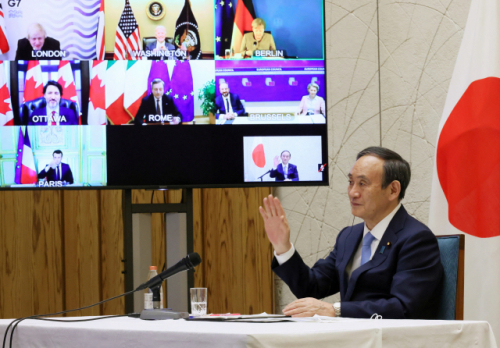The government’s mention of harmful shooting is unusual
China allowed the use of maritime weapons, apparently in mind
 viewer
viewer
The Nippon Geizai Shimbun reported on the 26th that the Japanese government has expressed its view that it can fire “weather fire” when foreign government ships are forced to land on the Senkaku (Chinese name Diaoyudao) Islands. The Japanese government’s mention of the possibility of shooting harm is considered extremely unusual.
According to reports, the Japanese government said at a joint meeting with the Liberal Democratic Party’s Defense Department and the Security Assistance Association the day before that if a foreign tourist ship compelled to land Senkaku, it was recognized as a heinous crime, and it was possible to shoot to suppress the opponent’s resistance through the use of weapons. According to the Police Officer’s Duty Execution Act, the maritime sheriff can exercise police power.
Members of the Liberal Democratic Party who attended the meeting responded that it was extremely unusual for the government to comment on shooting to deter foreign government ships from compulsory landing, Nihon Keizai said.
This attitude of the Japanese government can be interpreted as having in mind the Chinese coastline, which frequently appears in the waters near the Senkaku Islands. The Senkaku Islands, effectively controlled by Japan, is a territorial dispute between Japan and China.
In particular, after the Chinese side enforced the’Marine Police Act’, which allowed the use of weapons by the maritime police this month, Japan is more keen on the movement of the Chinese maritime line. Since this month, China has implemented the Maritime Police Act, which allows the maritime police to use weapons if foreign ships involved in illegal acts in the waters of the dispute over territorial rights do not comply with orders, and as a result, neighboring countries, which have a sovereignty conflict with China, are strongly opposed. .
Meanwhile, Japanese Prime Minister Suga Yoshihide agreed to cooperatively cope with attempts to unilaterally change the situation in the South and South China Sea, with China in mind during a telephone talk with Australian Prime Minister Scott Morrison the night before. Prime Minister Suga has expressed serious concern over the Maritime Police Law, which regulates China’s maritime border as a paramilitary organization, Nihon Keizai added.
/ Reporter Noh Hee-young [email protected]
< 저작권자 ⓒ 서울경제, 무단 전재 및 재배포 금지 >
